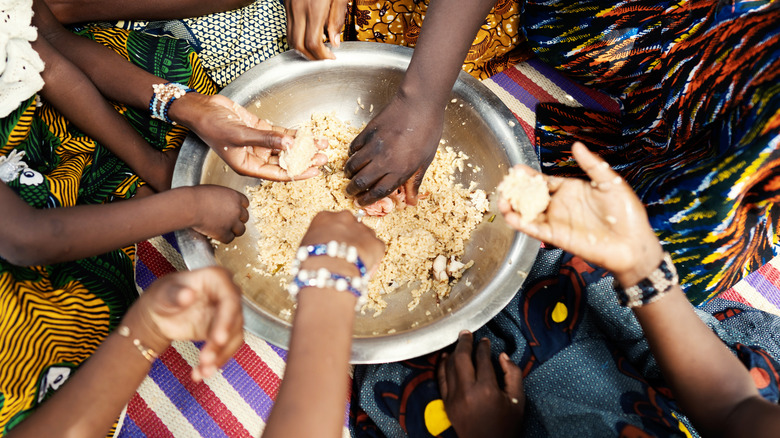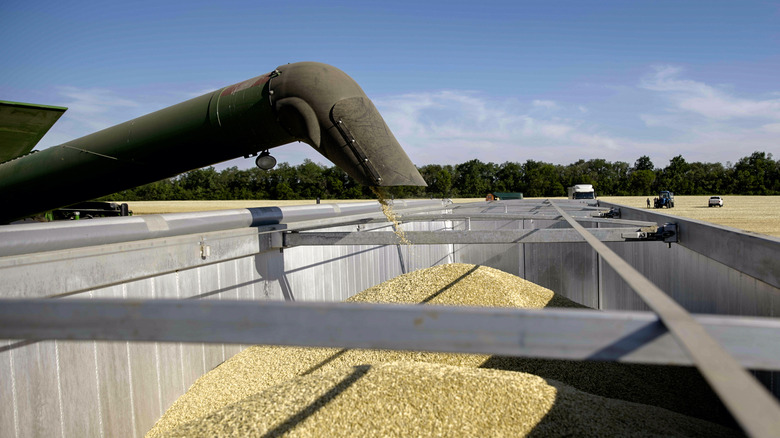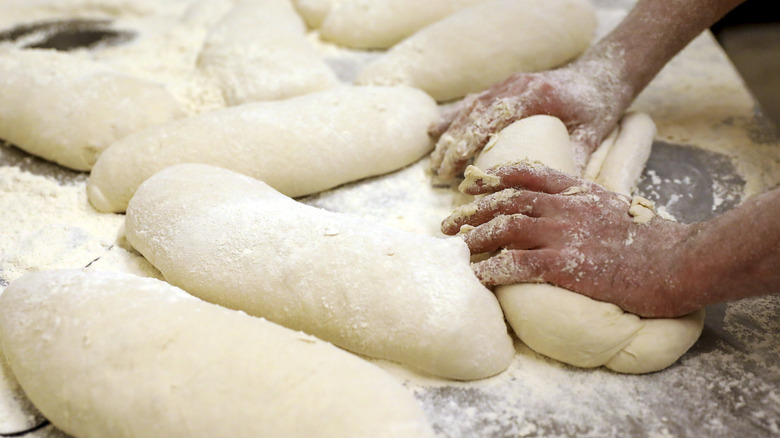Why The US And China Are Butting Heads Over The Food Crisis
On the first day of 2016, the world leaders from the United Nations adopted the Sustainable Development Goals, which sought to meet an audacious list of goals related to human development. These include ending poverty, tackling climate change, and fighting inequality. The organization gave itself 15 years to meet those goals, which also include putting an end to world hunger. For a time, it seemed that goal was within reach.
In a speech before the Center for Strategic and International Studies, Samantha Power, who heads the U.S. Agency for International Development, pointed out that between 2005 and 2015, "the number of people going to bed hungry each night fell by nearly 30 percent from around 805 million... to 509 million people." And while she added that the number was still too high to be happy about, the progress was still something to celebrate.
But as the United Nations' Economic and Social Council points out, the COVID-19 pandemic, the effects of extreme weather, as well as the war in Ukraine have worked together to reverse those gains (per the Associated Press). Today, 193 million people in 53 countries are trapped in what Power refers to as "the third stage of hunger" — which is a crisis point when relief organizations "[provide] the kind of assistance that... is the difference... between life and death."
The U.S. says China is aggravating the global food crisis
Power reserved her harshest words for China. During her speech at the Center for Strategic and International Studies, Power said "One country in particular stands out right now for its absence – the People's Republic of China. Even before the war in Ukraine began, Beijing's trade restrictions on fertilizer and hoarding of grain was inflating prices, while at the same time the government offered little of the transparency into its stocks and production that might have soothed markets."
The USAID chief also criticized Beijing for donating just $3.16 million to the World Food Program in 2022 — despite it being the second richest country in the world in nominal GDP terms (per Investopedia). Data from the World Food Program further shows that China's contribution puts it behind countries like Burkina Faso which itself has one of the largest food-insecure populations in the world (per OCHA). The United States' donation to the World Food Program in 2022 currently stands at $2.79 billion.
But, The New York Times suggests Power's comments are also fuelled in part by frustration, as China has continued to tacitly support Russia's invasion of Ukraine — a global bread basket — which the west sees as a key reason for the global food crisis. For instance, just hours after Russia signed a deal with Ukraine to open its re-open its ports for grain exports, it struck the seaport of Odesa, which Ukraine's Ministry of Agriculture said had grain when it was attacked (per VOA).
The world needs Russian and Ukrainian grain
While The New York Times says China believes the U.S. and its allies are behind the rise in global food prices, analysts agree that Russia's aggression against Ukraine is a key driver for the food inflation all of us are witnessing, especially since both countries produce a third — or about 60 tons of the 200 million tons that Deutsche Welle says the world needs. "The world cannot do without the harvests from Ukraine and Russia. Their amounts are simply too big," commodities analyst Wolfgang Sabel says. And if we think we struggle with inflation, high wheat prices are especially devastating for areas that are already being hit by global hunger. "In these countries, people spend between 60% and 80% of their disposable income on food. If bread becomes double as expensive because wheat has surged from €200 to €400 per ton that has an impact," Sobel says (per Deutsche Welle).
It's not too late for China to turn around, and Powers said as much by using her speech to call on Beijing to do more by donating more aid and exporting more food and fertilizer, which she said would "powerfully demonstrate the country's desire to be a global leader and a friend to the world's least-developed economies."


